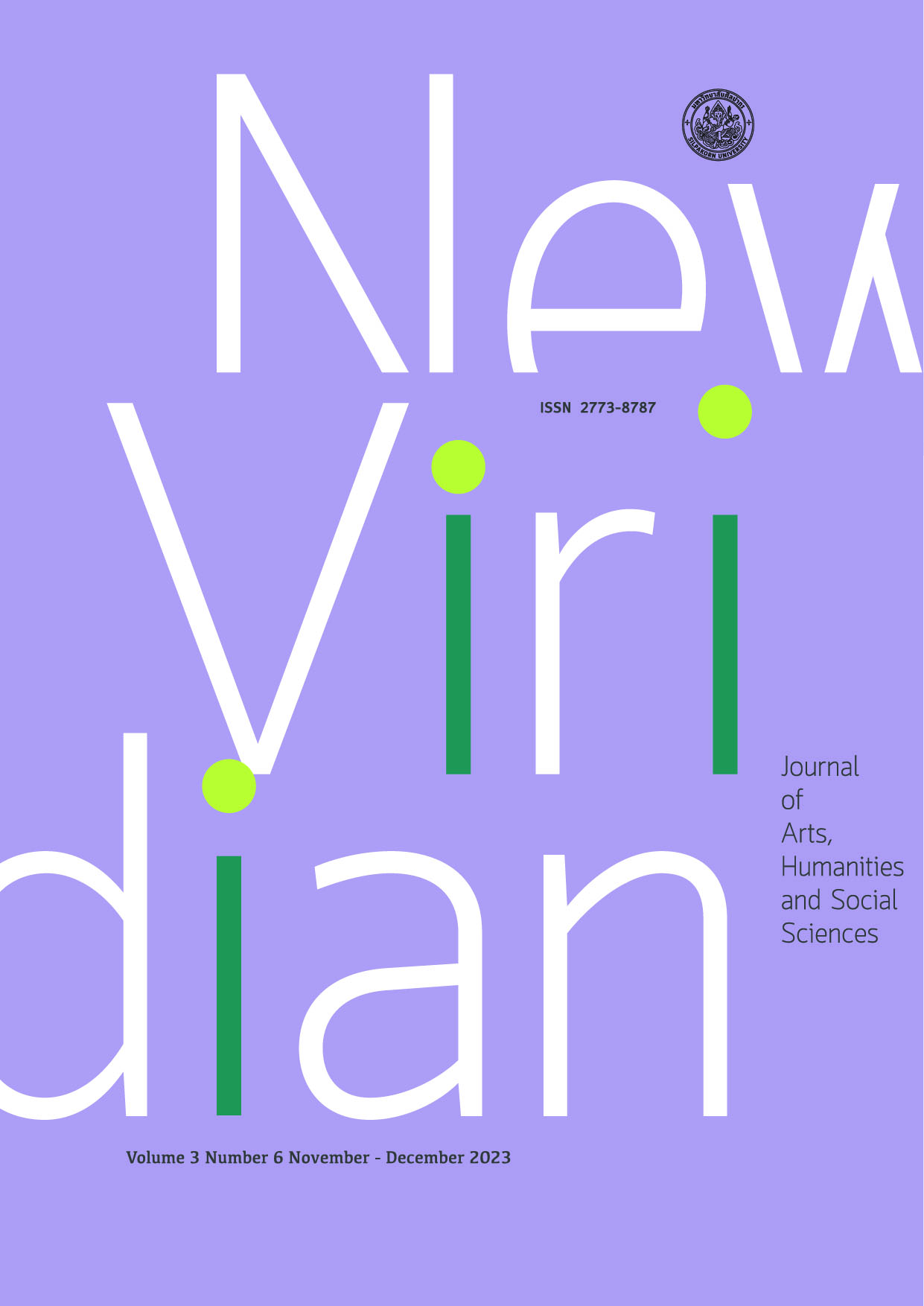การพัฒนารูปแบบการจัดการเรียนรู้ตามแนวคิด Instructional Coaching เพื่อส่งเสริมความสามารถในการเขียนแผนการจัดการเรียนรู้ของนักศึกษาวิชาชีพครู (Development of Instructional Model Based-on Instructional Coaching Approach to Enhance Ability to Write Lesson Plan of Students Teacher)
Keywords:
Development of instructional model, Instructional coaching approach, Ability to write lesson plan, Students teacherAbstract
The purposes of the research and development were to: 1) develop instructional model using instructional coaching approach to enhance ability to write lesson plan of student teacher 2) study effectiveness of instructional model using instructional coaching approach to enhance ability to write lesson plan of student teacher. The sample were 40 second years students, major in elementary education at Bansomdejchaopraya Rajabhat University. This research was conducted experiment by applying one shot case study design. The data were collected through evaluation form of lesson plan and questionnaire of students’ satisfaction on the instructional model. The data were analyzed using frequency, arithmetic mean, standard deviation, and content analysis. The results finding were follow: (1) The development of instructional model using instructional coaching approach to enhance ability to write lesson plan of student teacher (PPIM Model) consist of 4 components which are 1) principals of model, 2) objective of model, 3) instructional procedure, and 4) evaluation. The instructional procedure of PPIM model containing 4 steps, Pre-Coaching, Planning, Implementing, and Monitoring and Reflecting. (2) After using the instructional model using instructional coaching approach (PPIM Model), student teachers have a ability to write lesson plan at good level (X̅ = 4.23, S.D. = 0.07). According to using the PPIM model, determining the standard/indicator/learning content that related to instructional is at excellent level (X̅ = 4.42, S.D. = 0.13). 3) The students’ satisfaction of the PPIM model is at good level (X̅ = 4.42, S.D. = 0.13). Plus, coacher engage the student teacher in learning at excellent level (X̅ = 4.68, S.D. = 0.53).
References
Dechakup, Pimpan, & Yindeesuk, Payao. (2012). Teach How to Write Integrated Plans based on Children (สอนเขียนแผนบูรณาการบนฐานเด็กเป็นสำคัญ). Bangkok: Chulalongkorn University Press.
Hill, K. D. (2020). Instructional Coaching Resources. [Online]. Retrieved October 22, 2022 from https://drive.google.com/file/d/1eZZq7fsBR9s_0G0S80GCiaU0tAMXbiju/view?usp=sharing
Khammanee, Tissana. (2005). Instructional Model: Various options (รูปแบบการเรียนการสอน: ทางเลือกที่หลากหลาย) (3rd ed.). Bangkok: Chulalongkorn University Press.
Klaiphan, Sarocha. (2013). Problems and Guided Development in Professional Practices of Teacher Students from Institute of Physical Education Chonburi Campus (ปัญหาและแนวทางการพัฒนาการฝึกประสบการณ์วิชาชีพครูของนักศึกษาสถาบันการพลศึกษา วิทยาเขตชลบุรี). Journal of Educational Administration Burapha University, 8(1): 63-76.
Knight, J. (2022). The Definitive Guide to Instructional Coaching: Seven Factors for Success. Alexandria, VA: ASCD.
Office of the Education Council, Ministry of Education. (2017). The National Education Plan B.E. 2560-2579 (แผนการศึกษาแห่งชาติ พ.ศ. 2560-2579). Bangkok: Prikwarn Graphic.
Phromsa-ard, Ratthapol, Meechan, Surachai, & Charoensuk, Orn-uma. (2018). A Proposal on Effectiveness in Efficiency in Counseling for Teaching Internship Students Faculty of Education Phuket Rajabhat University (การนำเสนอแนวทางการดูแลให้คำปรึกษาแนะนำเพื่อส่งเสริมสมรรถนะ ด้านการจัดการเรียนรู้ของนักศึกษาฝึกประสบการณ์วิชาชีพครู คณะครุศาสตร์ มหาวิทยาลัยราชภัฏภูเก็ต). Social Sciences Research and Academic Journal, 13(38): 119-134.
Rittikoop, Wilaiporn. (2019). Instructional Coaching: Guidelines for the Development of Teachers’ Instruction (การชี้แนะการสอน: แนวทางการนำไปใช้พัฒนาการจัดการเรียนการสอนของครู). Ratchaphruek Journal, 17(1): 1-10.
Saengloetuthai, Jittirat, Thongnin, Panya, Booncherdchoo, Napadech, Maneerat, Chaiyut, Srisopha, Yothin, & Takomsane, Mutita. (2020). Action Learning (เรียนรู้จากการปฏิบัติ). Academic Journal of Phetchaburi Rajabhat University, 10(3): 155-163.
Satitpakeekul, Abhinbhorn. (2018). Instructional Design: Teacher’s Skill for Success (การออกแบบการเรียนการสอน: ทักษะเพื่อความสำเร็จของครู). Narkbhutparitat Journal Nakhon Si Thammarat Rajabhat University, 10(Special Issue): 107-115.
Simahasarn, Ekkarin. (2009). Educational Institution Curriculum Document: Concepts to Practice (กระบวนการจัดทำหลักสูตรสถานศึกษา แนวคิดสู่ปฏิบัติ). Bangkok: Bookpoint.
Sreesing, Mathavee, & Intorrathed, Sarawut. (2019). Problems and Guidelines towards Teacher Professional Experiences of Students in Bachelor of Education in Agriculture, Faculty of Education, Sakon Nakhon Rajabhat university (ปัญหาและแนวทางการแก้ปัญหาการฝึกประสบการณ์วิชาชีพครูของนักศึกษา หลักสูตรครุศาสตรบัณฑิต สาขาวิชาเกษตรศาสตร์ คณะครุศาสตร์ มหาวิทยาลัยราชภัฏสกลนคร). Journal of Industrial Education, 18(3): 215-223.
Sripairote, Thanawat. (2018). Influence of Project-Based Learning Coaching Program on Teacher Competency for Students' Learning and Innovative Skills (อิทธิพลของโปรแกรมการโค้ชการจัดการเรียนรู้โดยใช้โครงงานเป็นฐานที่มีต่อสมรรถนะของครูผู้สอน). Doctoral dissertation, Srinakharinwirot University, Bangkok, Thailand.
The Regional Educational Laboratory Program. (2019). Instructional Coaching in K-12 — A Literature Review and Discussion Questions. [Online]. Retrieved October 22, 2022 from https://ies.ed.gov/ncee/edlabs/regions/west/Publications/Details/269
Thongmaen, Rawichayuth, Kornpetpanee, Suchada, & Pradujprom, Piyathip. (2017). Designing Classroom Learning Activity by Implementing a Formative Assessment Process for Primary School Students (การออกแบบกิจกรรมการเรียนรู้ในชั้นเรียนโดยประยุกต์กระบวนการประเมินเพื่อพัฒนาผู้เรียนสำหรับนักเรียนระดับประถมศึกษา). Research Methodology & Cognitive Science, 15(2): 133-146.
Thumthong, Boonleang. (2016). Theories and Development of Instructional Model (ทฤษฎีและการพัฒนารูปแบบการจัดการเรียนรู้) (3rd ed.). Bangkok: Triple Education.
Van Merriënboer, J. J. G. (2019). The Four-Component Instructional Design Model: An Overview of Its Main Design Principles. [Online] Retrieved October 22, 2022 from https://www.4cid.org/wp-content/uploads/2021/04/vanmerrienboer-4cid-overview-of-main-design-principles-2021.pdf
Wongyai, Wichai, & Patphol, Marut. (2019). Coaching for Potential Developing of Learner (การโค้ชเพื่อพัฒนาศักยภาพผู้เรียน). Bangkok: Charansanitwong Printing.


